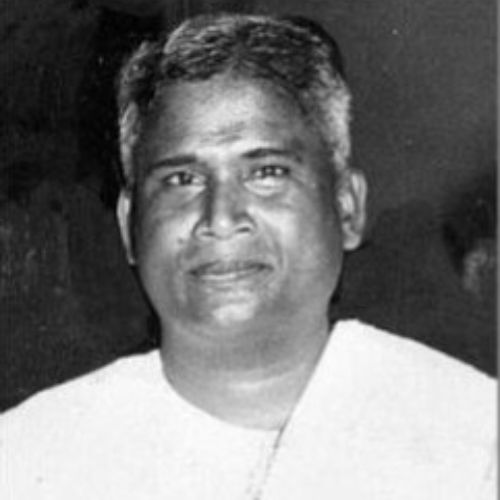Early Life
At 8: 45 a.m. on 8 July 1939, the entry of 5 dalits in the Meenakshi Amman temple in Madurai was a historical feat. Promoinent dalit leader, P. Kakkan along with Harijan Sevak Sangh led the group of people entering the temple despite severe opposition from upper-caste Hindus – marking a significant milestone in the temple entry movement. Kakkan was born on 13 June 1909 in Madurai.
Role in India’s Independence Movement
Kakkan was well-known for his role in the freedom struggle and the Dalit rights movement. He was arrested for his involvement in the Quit India Movement in 1942, and sentenced to imprisonment for 1.5 years. He was involved in movements to empower Dalits and the backward classes from his youth.
Insprired by the Temple Entry Proclamation issued in 1936 in Travancore permitting entry of everybody irrespective of caste in temples, the temple entry movement gained momentum in Madras. In June 1939, members of the Madurai Congress inlcuding Kakkan founded a Temple Entry Propaganda Committee to enable the entry of members of lower caste communities to enter the Meenakshi temple. This culminated in the historical event described above. On 17 July 1939, the Chief Minister of Madras Presidency – C Rajagopalachari, passed the Madras Temple Entry Ordinance.
Contribution to Constitution Making
Kakkan was elected to the Constituent Assembly on a Congress party ticket from the Madras province. He intervened in the debates on separate electorates and reservations.
Later Contributions
In 1951, Kakkan was elected to the Lok Sabha from Madurai. An active member of the Congress party, he was appointed president of the Tamil Nadu Congress Committee in 1957. He was also a member of the Madras Legislative Assembly from 1957 to 1967.
Kakkan was a minister in two successive Tamil Nadu governments, where he held several important portfolios: public works (1957-62), agriculture (1962-63) and home affairs (1963-67). As a legislator and a member of the executive, he was celebrated as an honest and hardworking leader. One of his most noteworthy achievements as a minister was the construction of dams and the establishment of agricultural colleges in Tamil Nadu.
After his defeat in the 1967 elections against a DMK opponent, Kakkan retired from politics.
He passed away on 23rd December 1981. Kakkan is still regarded as an eminent leader, appreciated for his role in shaping dalit politics and agricultural reform in present day Tamil Nadu.
- Commenting on the Constitution as a whole, Kakkan spoke in favour of the joint electorate system as a means to abolish untouchability and eliminate differences,
- He also endorsed the right of the State to make reservations for Dalits in government services under Draft Article 10 (Article 15).

